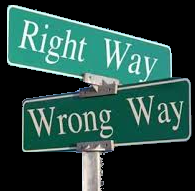In traditional measures of social responsibility “businesses profit by being responsive to society and its needs” (Jennings, 2012, p. 112) whereas Entine and Jennings views creates a ‘soul’ perspective of the organization. By ‘soul’ perspective Entine and Jennings basically have the idea that an organization should only participate in the bare minimum in order to comply with the law, stay honest and forthcoming, treat their employees well, and its charities. Traditional ways of social responsibility pretty much focus on one groups benefits and generally for the purpose of creating the most profits for the owner or shareholders. Entine and Jennings focuses on the whole society and organization as one entity and in order to complete the cycle each portion that makes up the society and organization must equally benefit in order to succeed. Entine and Jennings states the need for an organization to be honest and forthcoming with information that is of importance to the employees and society, whereas some traditional measures would only allow information to be released if it was forced to do so in order to keep a company shareholders pockets more heavily lined. Traditional measures generally used a balanced scorecard that measured its social responsibility by four perspectives;
-
Financial perspective – how does the firm look to shareholders?
-
Customer perspective – how do customers perceive the firm?
-
Internal business perspective – what must the firm excel at?
-
Innovation and learning perspective – can the firm change and improve to make its vision come true? (Aras & Crowther, 2010, p. 93)
By Entine and Jennings standards these four perspectives do not meet the qualifications of ‘social’ respnsibilities, and even Aras and Crowther state that “the balanced scorecard fails to incorporate environmental and social aspects of an organisation”, however they mention that “Figge et al. (2002) suggest that their concern with the balanced scorecard is that the logic of all the four perspectives are ‘almost exclusively in the economic sphere’ (p. 274)”. (Aras & Crowther, 2010, p. 95) Entinte and Jennings has a more rounded view of how to determine an organizations social responsibility by defining its ‘soul’. These eight questions that make up the characteristics of an organizations soul per Entine and Jennings;
Questions to ask:
-
Does the company comply with the law?
-
Does the company have a sense of propriety?
-
How honestly do product claims match with reality?
-
How forthcoming is the company with information?
-
How does the company treat its employees?
-
How does the company handle third-party ethics issues?
-
How charitable is the company?
-
How does the company react when faced with negative disclosures?
Found on page 104 of:
Jennings, M. (2012). Business ethics: Case studies and selected readings. Australia: South-Western, Cengage Learning.
Continue reading Entine and Jennings’ Eight Questions Vs. Traditional Measures of Social Responsibility
